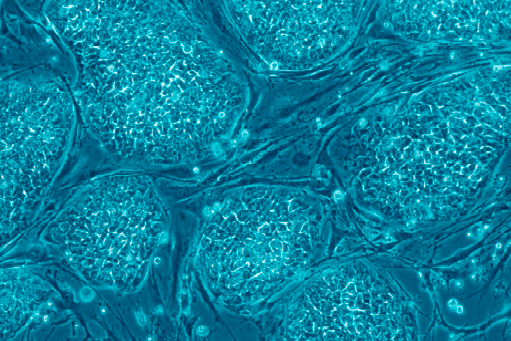Stem Cell Debate Finds Compromise With Use of Amniotic Fluid

A surprising compromise may be found in the debate over stem cells. Scientists at Imperial College London and the UCL Institute of Child Health found that amniotic fluid can have some of the same characteristics as embryonic stem cells.
Amniotic fluid is obtained from the womb during a procedure called amniocentesis, which inserts a needle into the amniotic sac of a woman, and is sometimes used to test for genetic diseases. Amniotic fluid surrounds and nourishes the fetus. The fluid contains stem cells of the fetus, and can be considered the bridge between embryonic stem cells and adult stem cells.
The scientists took samples of stem cells from amniotic fluid obtained from women who received an amniocentesis during their first trimester of pregnancy. The cells were grown in a gelatinous protein mixture, and were reconfigured into a more primitive state by adding valproic acid to the culture medium. Researchers found that the characteristics of the new cells were very similar to those of embryonic stem cells, which can be converted into any cell in the body, called pluripotency.
The use of embryonic stems cells is very controversial right now, due to ethical and moral dilemmas, and lack of donors. Previous efforts to give adult cells pluripotency, often using viruses, were not as efficient, and carried a risk of the creation of tumors due to the disruption in DNA. This is the first study that converted stem cells without inserting foreign bacteria or using viruses.
This could have a wide range of implications for treatment and research. Scientists mentioned specifically the application of amniotic stem cells for research into cerebral palsy, and other genetic diseases diagnosed early in life. A previous study estimated that 150 donors of the material could provide a match for 38 percent of the population.
Amniocentesis carries a slight risk of miscarriage, about one in 300 or one in 500.
The results of the study were published in the latest issue of Molecular Therapy.
Published by Medicaldaily.com



























